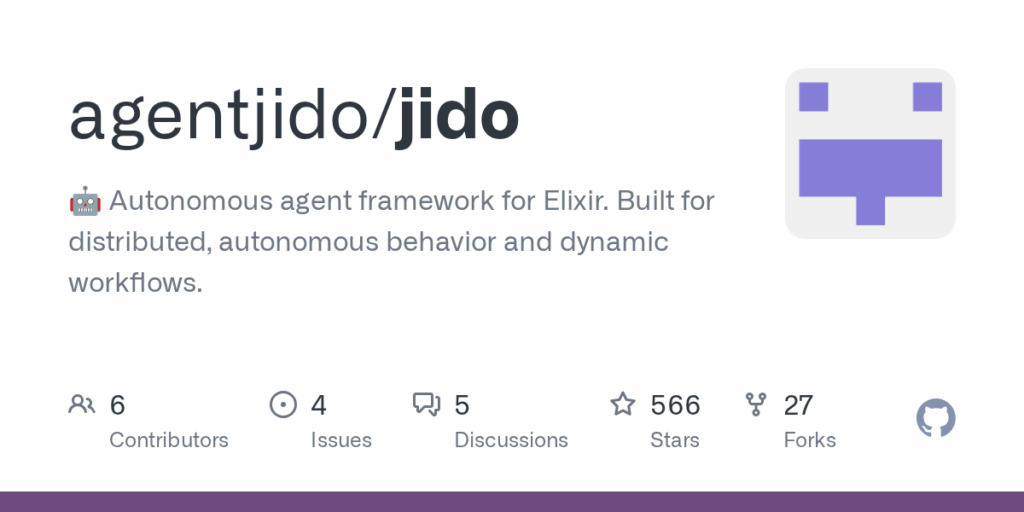jido
Basic Information
Jido is a developer-focused toolkit for building autonomous, distributed agent systems in Elixir. It provides the foundational primitives and patterns needed to create agents that can plan, execute, maintain state, and adapt behavior in a multi-node environment. The project is explicitly aimed at agent builders rather than shipping built-in AI; it supplies data structures, action and workflow abstractions, sensor hooks for real-time monitoring, and OTP-friendly agent processes so developers can compose advanced agentic systems. The repository includes guides, examples are available in a separate Workbench repository, and the package is intended to be integrated into Elixir applications and supervision trees for production deployments.
Links
Stars
554
Github Repository
App Details
Features
Jido exposes core state management primitives and stateless agent data structures, a composable Actions system for reusable units of work, and a Workflow runner to execute actions. It provides an Agent behaviour integrated with GenServer and dynamic supervisors for OTP-based lifecycle management. Sensors offer event-driven real-time monitoring and data gathering. Skills act as composable plugins to extend agent behavior. The design is distributed-first for multi-node clusters. The project includes rich testing utilities such as test helpers, property-based testing support, mocking utilities, and PubSub testing helpers. The README references companion packages for AI, chat, and memory used by the Workbench for example agents.
Use Cases
Jido helps developers accelerate building reliable autonomous agents by supplying battle-tested building blocks and conventions rather than application logic. Teams can define Actions to encapsulate discrete work, assemble workflows to run those actions, and create stateful Agents that live inside supervision trees. Sensors let agents respond to streaming or event data. OTP integration simplifies running agents in production and scaling across nodes. Testing utilities and quality checks make it easier to validate behaviors and prevent regressions. Because AI, chat, and memory capabilities are provided by separate companion packages, developers can incrementally add those features while relying on Jido for orchestration, state, and lifecycle management.








